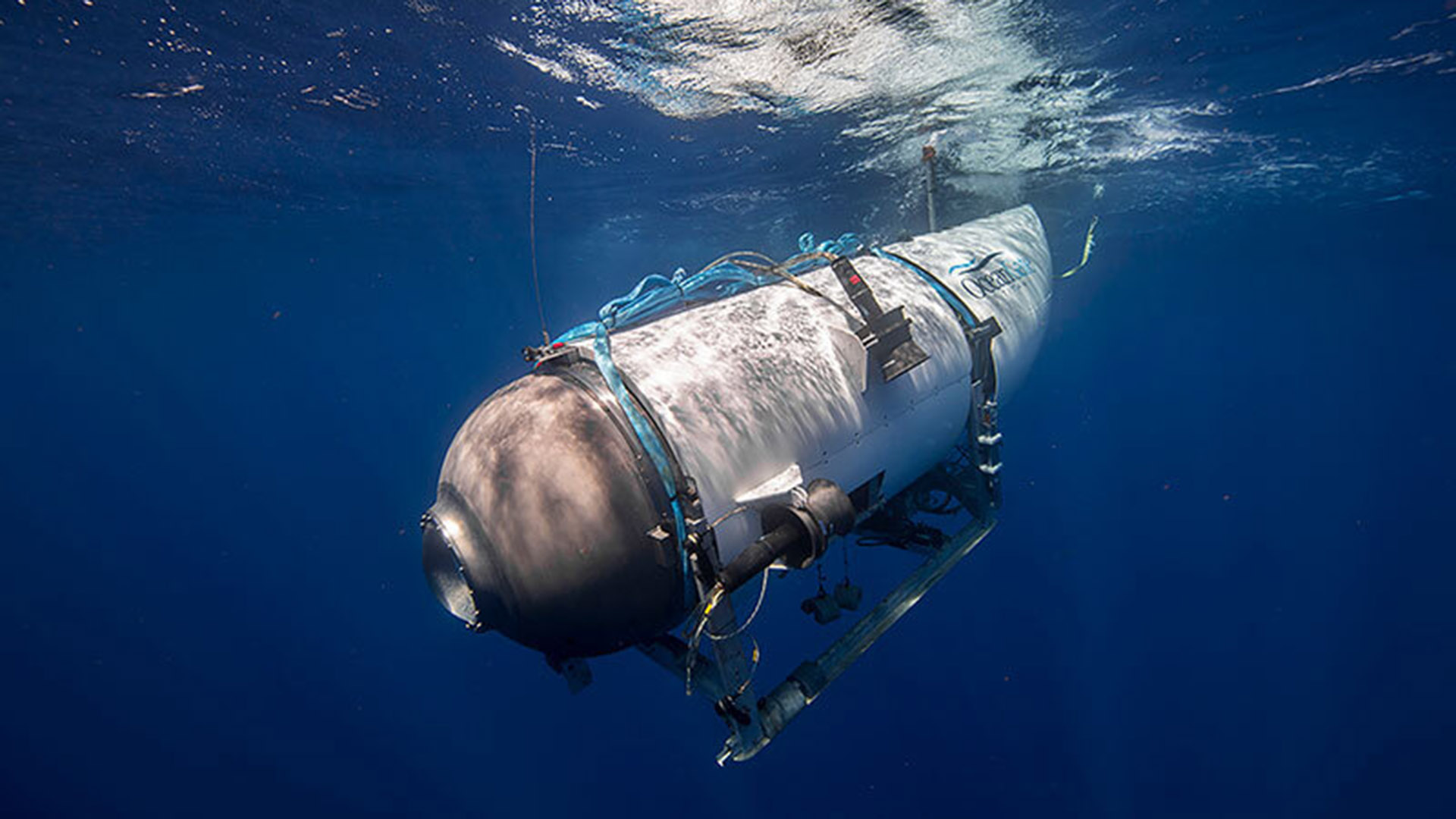

The company that owns and operates Titan, a submersible that went missing on Sunday on a dive to the Titanic’s wreckage, has announced that the five people aboard the vessel are believed dead.
The five people aboard OceanGate Expeditions mini-sub were Stockton Rush, who founded the company that owns and operates Titan; British businessman Hamish Harding; French diver Paul-Henri Nargeolet; Pakistani billionaire Shahzada Dawood and his 19-year-old son Suleman.
Shortly after the company issued its statement, a Coast Guard spokesman confirmed that an underwater remotely operated vehicle had located debris from Titan on the ocean floor and offered his condolences to the families of the five people aboard the vessel.
Shortly after the company issued its statement, U.S. Coast Guard Rear Adm. John Mauger told reporters that an underwater remotely operated vehicle had located debris from Titan on the ocean floor and offered his condolences to the families of the five people aboard the vessel.
“The debris is consistent with the catastrophic loss of the pressure chamber,” said Mauger, commander of the First Coast Guard District. “Upon this determination, we immediately notified the families.”
Subscribe to Task & Purpose Today. Get the latest military news and culture in your inbox daily.
The underwater remotely operated vehicle located debris from the Titan roughly 1,600 feet from the Titanic’s wreck, indicating that it did not collide with wreckage, Coast Guard officials said at Thursday’s news conference.
The debris field was consistent with a “catastrophic implosion,” the Coast Guard said.
Titan’s mothership lost contact with the vessel roughly one hour and 45 minutes into a dive on the Titanic’s wreck site. OceanGate Expeditions, which owns and operates Titan, told the Coast Guard that the submersible’s oxygen supply could last up to 96 hours.
U.S. and Canadian Coast Guard ships and aircraft searched thousands of square miles of ocean to see if Titan had surfaced and used sonar to listen for any signs of the vessel below the water.
A Canadian P-3 Orion aircraft detected banging noises in the search area, raising hopes that the people aboard Titan were still alive and trying to contact rescuers, but the Navy analysis of the sounds was inconclusive, Coast Guard Capt. Jamie Frederick told reporters on Wednesday.
“We need to have hope, alright, but I can’t tell you what the noises are,” Frederick said at Wednesday’s news conference. “All I can tell you – I think this is the most important point – we’re searching where the noises are, and that’s all we can do at this point.”
On Thursday morning, the Titan’s estimated oxygen supply ran out and the vessel still had not been located. Shortly afterward, the Coast Guard tweeted that a debris field had been discovered near the Titanic’s wreck.
David Mearns, a friend of passengers aboard Titan, subsequently told the BBC that some of the debris that had been discovered belonged to the submersible. Guillermo Söhnlein, OceanGate’s co-founder, told the BBC he believes Titan may have imploded four days ago.
It is not yet known how, when, and why Titan sank, Mauger said at a Thursday news conference.
When asked if the remains of the five people aboard Titan could be recovered, Mauger said he did not have an answer.
“This is an incredibly unforgiving environment down there on the seafloor, and the debris is consistent with a catastrophic implosion of the vessel.”
UPDATE: 06/22/2023; this story was updated with comments from Coast Guard Rear Adm. John Mauger.
The latest on Task & Purpose
- Is Ukraine winning the war against Russia?
- Air Force sends F-22s to Middle East to deter aggressive Russian pilots
- Army secretary concerned ‘woke military’ criticism could hurt the service
- Fort Sill commander fired amid investigation
- Fort Polk is renamed Fort Johnson